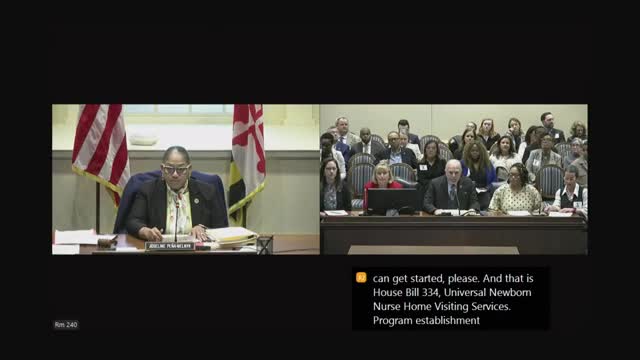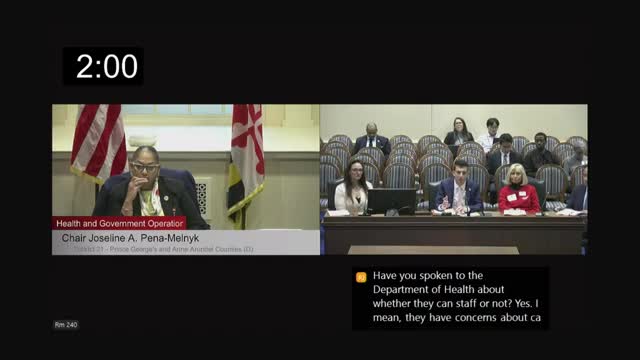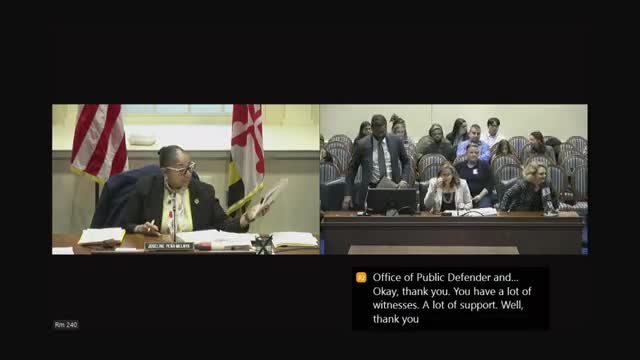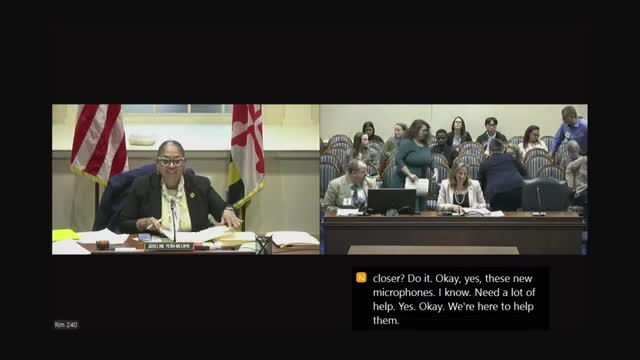Article not found
This article is no longer available. But don't worry—we've gathered other articles that discuss the same topic.

Maryland hearing spotlights push for universal newborn nurse home visits to reduce maternal and infant harms

Committee hears proposal to cover self‑measured blood‑pressure monitoring for Medicaid recipients, emphasizing maternal health benefits

Bill would statutorily standardize forensic review boards and conditional‑release oversight after concerns about transparency and beds

